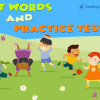Learning English as a second language has been an essential skill in many non-English speaking countries. You can see numerous people in Asian, Southern American, and African countries working hard to learn English. It doesn’t matter what the mother tongue is, as they also don’t care about the accent. What is important is they can communicate in English. As a result, many people also become a polyglot and learn more languages.
Table of Contents
Why You Should Learn English as a Second Language
English is The Second Most Spoken Language
The sheer amount of Chinese population worldwide is the main reason why Chinese is the most spoken language in the world. However, more people from non-English speaking countries can speak English more than Chinese.
English courses are also more popular than Mandarin Japanese and other languages. This means you can communicate with more people as long as you can speak some basic English. You don’t have to worry when you travel abroad and ask for help.
Explore More Career Opportunities
Understanding and actively speaking in English can open more doors. You will see numerous job openings everywhere you go when you can speak English. This skill is not limited to people in the hospitality industry, but also to those who are seeking a career in technology or even the oil and gas industry.
English is the standard international and Internet language
Like it or not, English is the standard way to communicate internationally and the de facto standard language of the Internet. Therefore, by learning English, you gain access to a sheer amount of information produced by sources coming from all over the world. There is no other language that offer this possibility, any other language can’t even compare, it is a matter of quantity, aka the law of large numbers: you will be able to get the best and fresher information about a subject you are interested in, from professional articles, to news source to DIY and tutorial videos. Also, any international research and scientific paper is published in English as this is the language that universities around the world use to exchange information and cooperate among themselves.
Tips to Efficiently Learn English as a Second Language
Set Goals
Sometimes, learning English is not about pursuing a career. You can learn English so you can read classic titles in English or watch movies without any subtitles.
Any goals are fine as long as you keep your focus. You can set your goals in the short-term and long-term to track your progress better. It also can motivate you to keep on practicing and learning the language.
Start from the basics
When you learn English as a second language, you must start from the basics. Don’t get too confident and skip some necessities such as understanding and applying English grammar. It’s okay to make mistakes at the start. You may use the wrong article because you’re confusing countable and uncountable nouns. You also can think you only need to add –ed to change all verbs to past form.
All of these mistakes will slowly diminish as you learn from your mistakes and make some mental corrections. You may not realize it at first, but your grammar will slowly get better and you won’t have to make mental corrections anymore.
There is no shortcut to learning a new language. You must start with how each letter sounds and start moving to words, phrases, and tenses, before reading a whole paragraph.
You also don’t have to worry about your accent while learning English. As long as you speak clearly, your partner will understand what you’re saying.
Grammar course
Here follows a list of articles to be studied in the presented order to get familiar with the most grammar constructs and rules, such as tenses, articles, adverbs, adjectives, pronouns, prepositions and so on, study them all with a regular cadence, 2 or three per week is a good pace, you can find all the information you need in the English grammar section of this website.
Keep Improving Your Vocabulary
English has thousands of vocabularies that you should know. Of course, when you start learning English as a second language, your vocabulary will be very limited. But as you read and learn more, you will know that there are a dozen ways to say sad. You also know the difference between see, watch, and observe.
Learn from the Media
Newspaper, songs, social media, TV, Netflix, books, and movies are some of the best ways to polish your skills. It sure sounds very simple, but the media can be a great way to improve your vocabulary and general English skills.
You can challenge yourself by reading three articles in English in a day. Highlight the words that you don’t know and look for their meanings. When you do this regularly, you will see that you don’t have to highlight any more words as you read dozens of articles in a day.
Install streaming IPTV app like Watchat.
Watchat is a free mobile app to watch thousands of English TV channels. Install it and watch movies and shows to get familiar with idiomatic expressions and pronunciations rules that may vary from country to country, for example people from Australia or Scotland could be more difficult to understand if you are used to UK English or Californian accent. Moreover, Watchat offers a chat system to interact with other viewers and the most used language in the chat is English.
to watch thousands of English TV channels. Install it and watch movies and shows to get familiar with idiomatic expressions and pronunciations rules that may vary from country to country, for example people from Australia or Scotland could be more difficult to understand if you are used to UK English or Californian accent. Moreover, Watchat offers a chat system to interact with other viewers and the most used language in the chat is English.
Get it at https://www.watchat.online
Keep a list of unknown words
No matter how long you study English on books and courses, when you will start using English in everyday life, you will stumble upon many words you commonly use in your language but you will have no idea about their corresponding English ones. This is normal as text books use very common situations and object names and don’t dive into specific details, otherwise they would need too much space, two sentences among the most famous used by English text books for foreigners are the infamous: This is a pen or The cat is on the table. Alas, in real life situation you often need something else then a pen and see many things other than a cat as for example specific tools, uncommon objects, animals, pieces of furniture, verbs and so on.
As you meet an unknown word, add it in a text file or in a notepad in your native language, check its English counterpart, write it close to the word and memorize it as soon as you can.
As this list will reach around 100 words you will be much more comfortable in using English in everyday life.
Take Some Classes, and be Serious About It.
Many people sign up for English classes, but they only come once or twice and neglect the class because they think they’re too busy for the class. You can look for a class with a flexible schedule or even hire a private tutor to help you with your study.
You can look for specific English classes, such as Business English or TOEIC and TOEFL preparation classes. Due to their scope, they will be more focused on specific aspects than a general English class.
Don’t Stop Practicing
Even when you already know the grammar and have a massive vocabulary in your brain, you need to still practice the language. It doesn’t matter if you challenge yourself to watch a movie without subtitles or transcribing the latest song from Eminem. You can choose any method to practice English, as long as you’re having fun while learning.
Challenges You May Face
Cultural Differences
No matter what your mother tongue is, there will always be a cultural clash when you learn English. For example, Japanese and Korean have several words to say “you” depending on the person’s age, closeness, and status. While English only has “you” to address the second person.
You can find more differences in the culture and sometimes it may cause some discomfort or confusion. But when you
Too Focused on Mistakes
This is a common mistake for all learners. They are too scared to make a mistake and worry too much about using the correct grammar.
Instead of focusing on what could be wrong, you should focus on using those mistakes to improve your English. The more you practice, the more you notice your mistakes, you will learn a lot more, and in the long run, the mistakes become less frequent.
Learning is a lifelong process and you must have faith in every step of the process. Remember, there is no shortcut to mastering English. You need to start from the bottom to be at the top.
You must believe in yourself to start learning English as a second language. There is no age limit on when you should start learning. Of course, starting it young will give you a better advantage. But it doesn’t mean someone at a later age cannot learn English as efficiently.
Subscribe to our Newsletter to receive news and offers in your inbox!!!!


